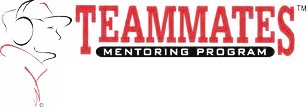Article from the Stamford Advocate - Click here to link to the full article.
COLUMBUS, Neb. (AP) — Columbus' youth will have more mentors thanks to an effort by Heather Loseke.
The former Miss Columbus embarked on a challenge to businesses this year to increase mentoring in the community. Called the Miss Columbus Business Challenge, it kicked off at the start of the year.
Businesses were encouraged to increase their number of employees who mentor. The organization that showed the greatest increase was rewarded with a visit by Tom Osborne, founder of the TeamMates mentoring program.
The Business Challenge concluded May 15. Winning the challenge was Columbus Family Practice. Osborne recently spent an afternoon luncheon with the group at Wunderlich's.
Loseke said her goal was to get 20 mentors. She spoke to approximately 50 businesses about the benefits of mentoring. In the end, 25 people signed up to mentor and another 14 pledged to volunteer with TeamMates, Big Pals-Little Pals and Youth For Christ.
Ten of the new mentors came from Columbus Family Practice. That accounts for about half of the office employees. Office manager Tracy Goos said she welcomed Loseke into the office to speak to employees about mentoring. She herself signed up for TeamMates.
Goos said she didn't know how many from her office would choose to be mentors. She feels it will be beneficial for all involved.
"I hope it will be a win-win situation for the mentors and the mentees. I hope they will make an impact on the youth. I know what great people they are and how much of an impact they can make," Goos said.
Loseke's platform issue when she was crowned Miss Columbus in 2009 was building strong mentoring relationships. She herself was mentored as a child through Youth For Christ and later volunteered with TeamMates when she was in college.
When approaching businesses about mentoring, Loseke pushed the benefits that employers could experience by allowing employees to mentor. Some of those benefits include better production and attitudes from employees.
Loseke said one of the biggest questions mentors have is if they are really making a difference. A youth might not remember all the encouragement and guidance from a mentor, but they will take one thing with them.
"What they are going to remember is that you are consistently there caring for them. That's that biggest impact you make on their life," Loseke said.
Mentoring, she said, is like a friendship where support and investment in a young person's life is a priority.
"The more mentors we can have in our community, the better place it will be," Loseke said.
The biggest struggle for mentoring organizations is finding people willing to be a mentor.
"The hardest thing is to recruit mentors. Sometimes it is a lot easier to write a check than to give of your time and to give of your personal resources," Osborne said.
TeamMates has 4,300 kids who are being mentored in 116 communities. But Osborne said in most communities, there is at least one-third more kids who would like a mentor than they have mentors.
A mentor really provides three ingredients that can help a young person, Osborne said. That includes unconditional caring, affirmation and providing a vision. Many kids don't have caring adults in their lives on a consistent basis. Mentoring can help fill that void.
Organizations like TeamMates pushes education. Studies have shown it is having a positive effect in that area. Children who are mentored show improvement in several areas, including better school attendance, fewer disciplinary referrals and better grades.
But mentoring reaches beyond the classroom. It can help a child see beyond his or her own problems they are experiencing at home and strive for a better future for themselves.
"The thing about mentoring that is important is that it is really about breaking cycles," Osborne said.
